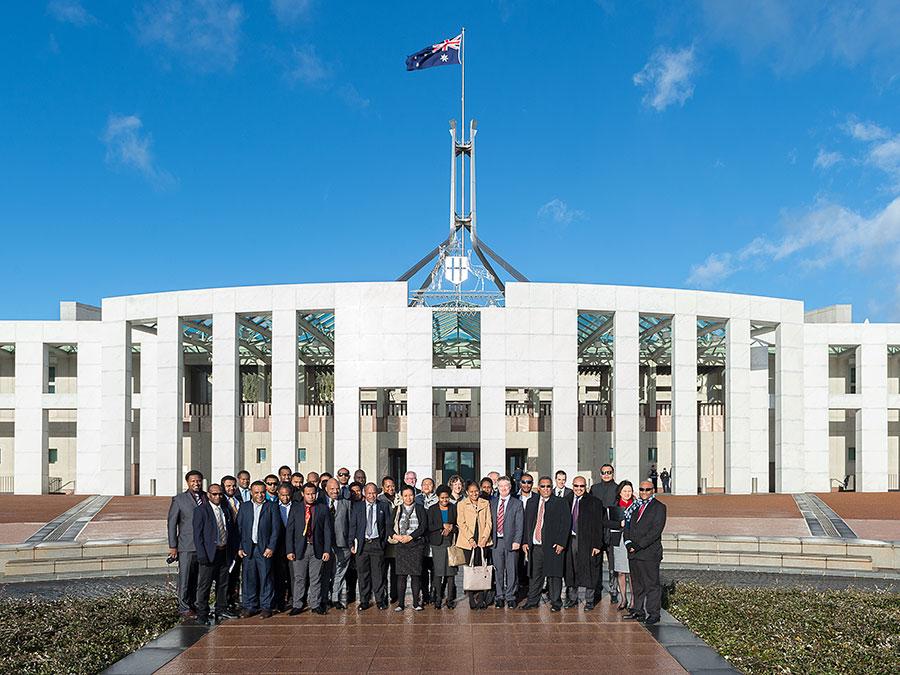Training Programs
Training programs developed and delivered by IIT experts and associates are tailored to the specific needs of government and business clients.
IIT training and capacity building incorporates ongoing mentoring, monitoring of work plans for sustainability in participants’ workplaces, and organisational development, including through academic opportunities and research.
Specific content and information can be built into the core content, permitting maximum application of the program to the local context. In addition, interactions with relevant government agencies, businesses and industry associations can be incorporated into our programs, providing the basis for ongoing interactions with partners who have the potential to assist our participants in achieving their long-term objectives.
We offer our participants a varied learning experience, incorporating:
- face to face seminars, discussions and interactive workshops led by renowned educators, government and business leaders with experience in international trade and development;
- simulated trade negotiations;
- peer to peer learning in and outside the classroom;
- site visits and guest speakers from organisations with first-hand experience in international trade and economic development;
- case studies providing practical government and industry examples relevant to the program content;
- networking opportunities with peak industry bodies, government agencies and businesses.

CASE STUDY
The Institute for International Trade designed and delivered a training program to equip government leaders from within the Asia-Pacific Economic Cooperation (APEC) Secretariat in Papua New Guinea, the Department of Trade, Commerce and Industry and the Department of Foreign Affairs from the Government of Papua New Guinea with the skills, knowledge and leadership capabilities required to effectively host APEC2018.
The program seamlessly integrated intensive academic modules with practical workshops and immersive experiences designed to develop the soft skills needed to effectively engage in negotiations in preparation for their hosting of APEC in 2018. All participants regularly apply the knowledge and skills gained over the course of the program in their current roles, and almost half reported doing so on a daily basis. Their improved understanding of international trade policy and regulations, enhanced skills in critical and binding constraints analysis, and ability to communicate more effectively both in person and via ministerial briefs and concept notes were found to be particularly useful within the workplace. More than 70 percent of awardees implemented significant changes in their departments within six months of completion, as a direct result of their participation, and many experienced higher levels of commitment and dedication to their work.
Need more information?
Contact us today to find out how we can help you or your organisation take advantage of the opportunities presented by today’s global economy.
Email: iit@adelaide.edu.au
Phone: 08 83136900
